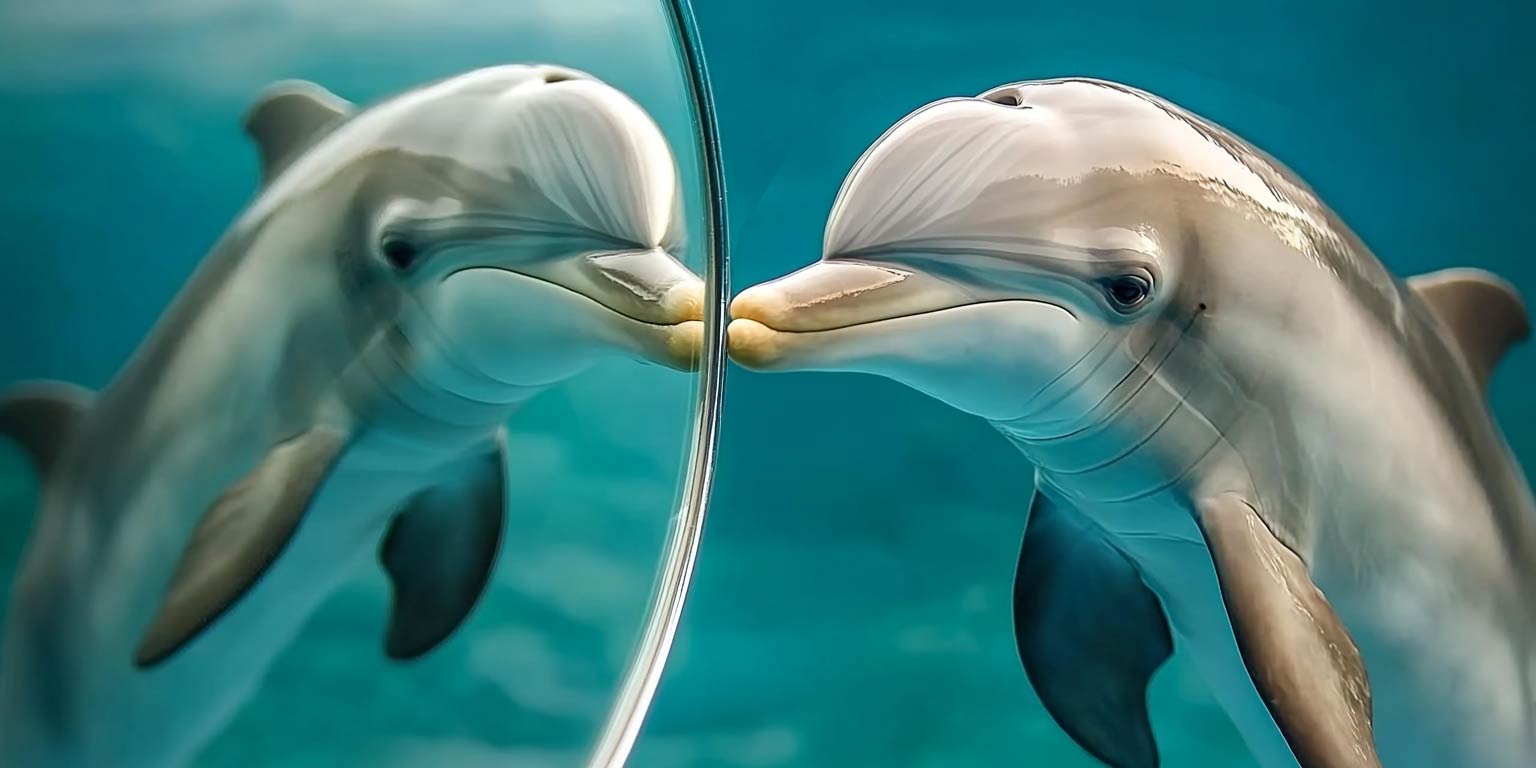We’ve long known dolphins are intelligent, but recent discoveries continue to reshape how we see them. One of the most fascinating? Dolphins may actually use names.
Unlike most animals, dolphins don’t just respond to vocal signals—they create and use unique signature whistles to identify themselves and others. These individualized sounds work much like names do for humans, helping dolphins maintain complex social bonds, recognize family members, and even remember friends after years apart.
But their talents don’t stop there. Dolphins also appear to recognize themselves in mirrors, a rare trait linked to self-awareness, and they’re known to form connections with humans—sometimes even defending people from sharks.
Do Dolphins Use Names?
Yes, dolphins appear to give each other names in the form of unique whistles. Researchers have found that:
- Each dolphin develops a “signature whistle” in the first few months of life.
- These whistles are unique to the individual and remain stable over time.
- Other dolphins learn and mimic those whistles to call out or respond to specific individuals.
This is more than just sound—it’s a system of identity. Dolphins don’t just make noise; they address one another. Think of it as a vocal name tag that travels with them across the sea.
Even more impressive, studies show dolphins can remember the signature whistles of other dolphins even after being separated for 20 years—suggesting long-term memory and strong social intelligence.
Do Dolphins Recognize Themselves in Mirrors?
Mirror self-recognition is a major sign of self-awareness, and only a few species—including humans, great apes, elephants, and some birds—have passed this test. Dolphins are part of that elite group.
In controlled studies, dolphins have been observed:
- Investigating their reflections closely.
- Using mirrors to inspect parts of their bodies they can’t normally see.
- Performing repetitive movements in front of the mirror, seemingly testing its responses.
These behaviors suggest that dolphins understand the image is of themselves, not another animal. That’s a huge leap in cognitive complexity, pointing to advanced awareness and emotional intelligence.
Do Dolphins Recognize Humans?
Yes, and not just as random figures in the water. Dolphins can distinguish between individual people, and they appear to recognize familiar humans by:
- Voice and movement in the water.
- Facial recognition, especially in trained dolphins working with humans.
- Ongoing memory, even after time apart.
Some dolphins in the wild have been known to repeatedly approach specific divers or boaters—indicating they may remember certain people and perhaps enjoy their company. In captivity, dolphins trained in complex behaviors can distinguish between multiple handlers and respond to specific cues from each.
This level of recognition is part of what makes human-dolphin interactions so unique and personal.
Why Do Dolphins Protect Humans from Sharks?
There are many documented accounts of dolphins circling or shielding humans from approaching sharks. While no one can say exactly why, there are several theories:
- Protective instinct: Dolphins are social animals that care for their own kind. When they see a human in distress, they may instinctively respond.
- Territorial behavior: Dolphins may view sharks as threats to their pod or space and act to push them away.
- Curiosity or playfulness: Some believe dolphins are curious and may engage with sharks out of interest, not aggression—but the result still benefits the human.
Regardless of motive, there’s something undeniably powerful about dolphins choosing to intervene. In some cases, their actions have saved lives.
Calling by Name: How Dolphins Connect, Recognize, and Protect
Dolphins are not only smart—they’re emotionally intelligent, socially complex, and remarkably aware of their surroundings. They create names for each other, recognize themselves and others, and sometimes go out of their way to help humans.
These traits make them one of the most fascinating species in the ocean. As we continue to learn more, one thing is clear: dolphins understand more than we’ve ever given them credit for.












